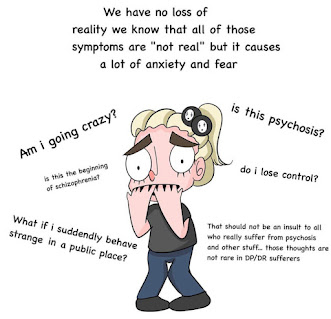And the most serious effect of the mill you’ve been through is, again, not the catalog of disaster, the policemen, the taxi drivers, the waiters, the landlady, the landlord, the banks, the insurance companies, the millions of details, twenty four hours of every day, which spell out to you that you are a worthless human being. It is not that. It’s by that time that you’ve begun to see it happening, in your daughter or your son, or your niece or your nephew.
...nothing you have done has helped to escape the trap. But what is worse than that, is that nothing you have done, and as far as you can tell, nothing you can do, will save your son or your daughter from meeting the same disaster and coming to the same end.
"And no amount of rhetoric and no amount of idealism...none of this reasonable talk changes the fact that you have millions of people in this country who have no jobs and no future and who are trapped in what for them is a concentration camp and who have concluded that the country intends to destroy them. I have no evidence to offer them to the contrary".
"The poverty is piled high making it...more inescapable and making it even more inescapable is how thoroughly you're despised. A high rise slum is a high crime area almost at once because, what are you going to do with all these children really, whole families condemned forever to nothing in the richest city in the world. My best friend jumped off George Washington bridge...and I was sure that I was going to be next. From despair, from rage because...you are embattled so often that that's all you can do. You've been beaten so hard your world narrows to a red circle of rage and you begin to hate everybody which means you hate yourself and when that happens, it's over for you".
"Those fears cut so deep. The fear that we’re not who we say we are. The fear that the underpinnings of our fragile experiment in democracy are rickety stilts. There’s a fear of being revealed for who we actually are. That fear is always tethered to the idea that revenge will follow—that these people must hate us. They must want to do to us what we have done to them. I think that sense of impending doom or retribution moves us about".
"When I was very young, and was dealing with my buddies in those wine- and urine-stained hallways, something in me wondered, What will happen to all that beauty?...And when I sat at Elijah’s table and watched the baby, the women, and the men, and we talked about God’s—or Allah’s—vengeance, I wondered, when that vengeance was achieved, What will happen to all that beauty then? I could also see that the intransigence and ignorance of the white world might make that vengeance inevitable—a vengeance that does not really depend on, and cannot really be executed by, any person or organization, and that cannot be prevented by any police force or army: historical vengeance, a cosmic vengeance, based on the law that we recognize when we say, “Whatever goes up must come down.” And here we are, at the center of the arc, trapped in the gaudiest, most valuable, and most improbable water wheel the world has ever seen. Everything now, we must assume, is in our hands; we have no right to assume otherwise. If we—and now I mean the relatively conscious whites and the relatively conscious blacks, who must...insist on, or create, the consciousness of the others...If we do not now dare everything, the fulfillment of that prophecy, re-created from the Bible in song by a slave, is upon us: God gave Noah the rainbow sign, No more water, the fire next time!"
"Not everything that is faced can be changed, but nothing can be changed until it is faced".
"...if you’re trying to avoid reality, how can you face it? If you don’t know what is going on in the ghettos of this nation, in the hearts and minds of women and men you see every day, then...you don’t really know what’s going on in your own heart and mind. And you have no way of knowing what’s going on in the hearts and minds of millions of people on this globe".
"People cannot bear their reality. They prefer fantasy over a truthful recreation of their experience".
James Baldwin












